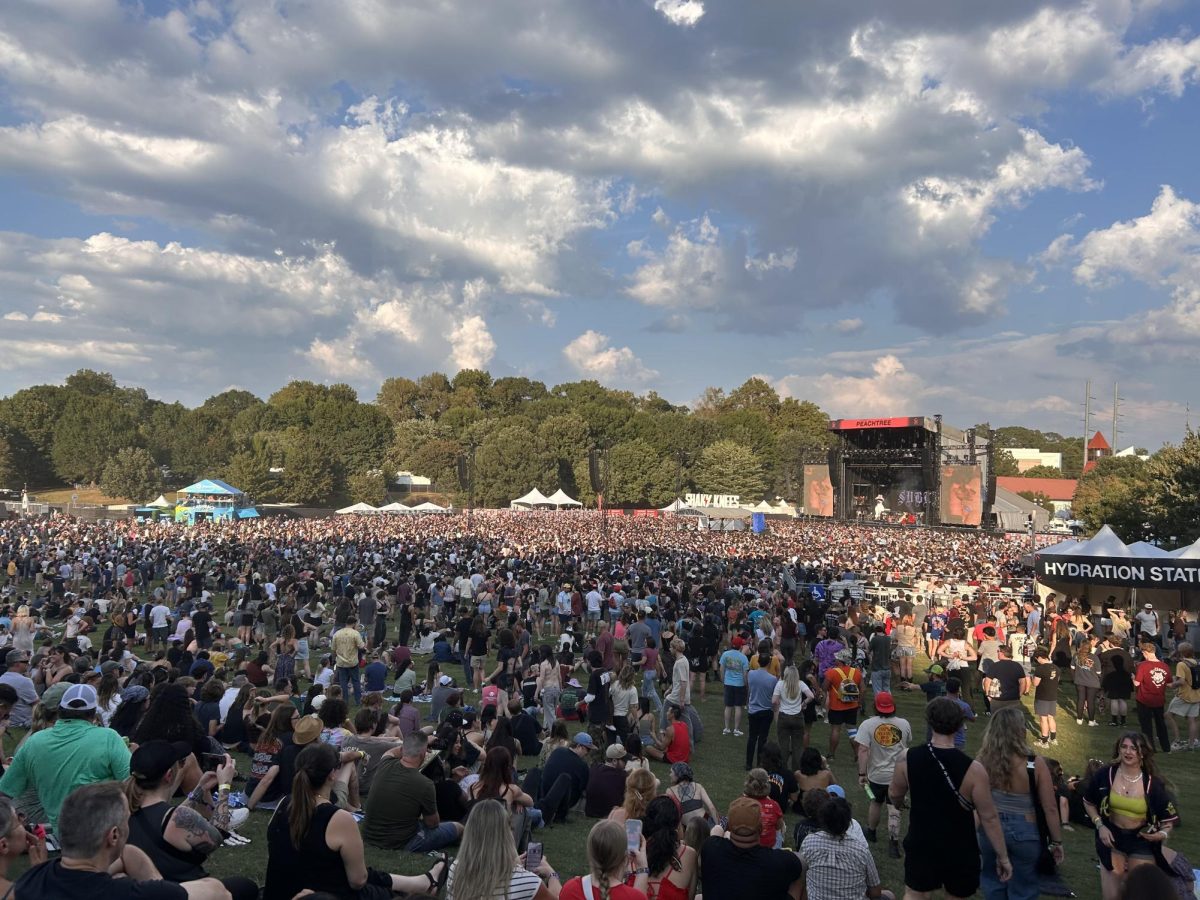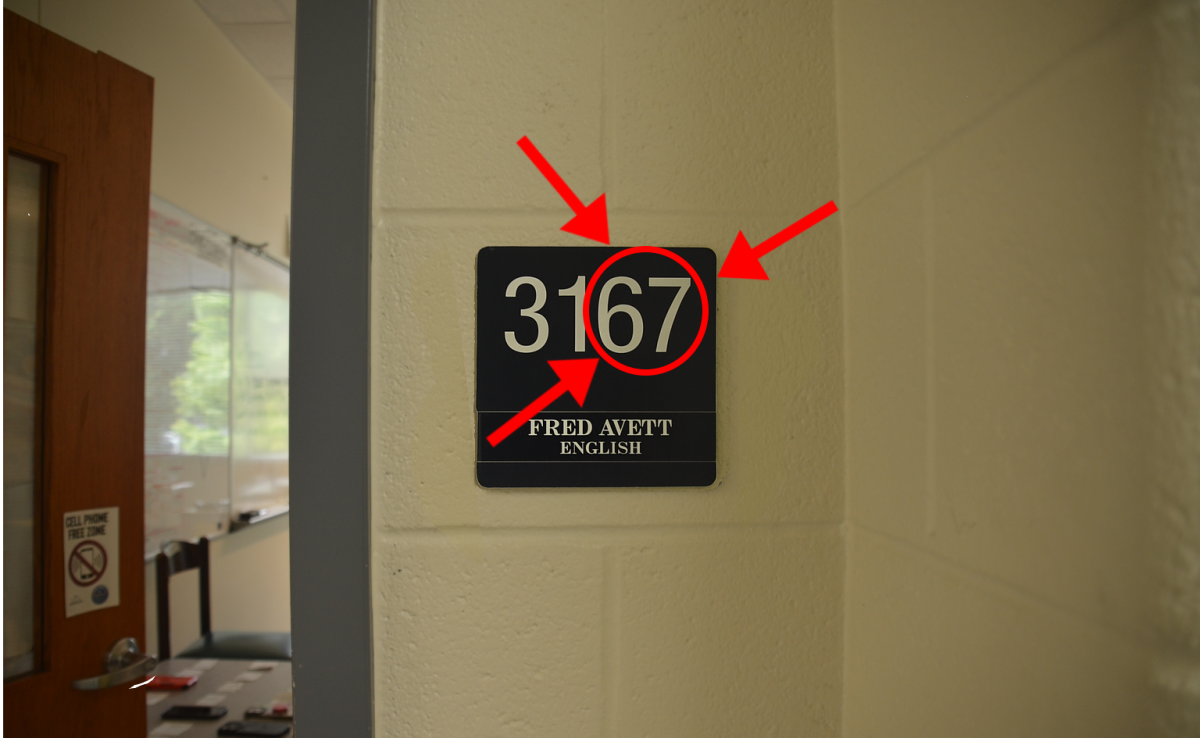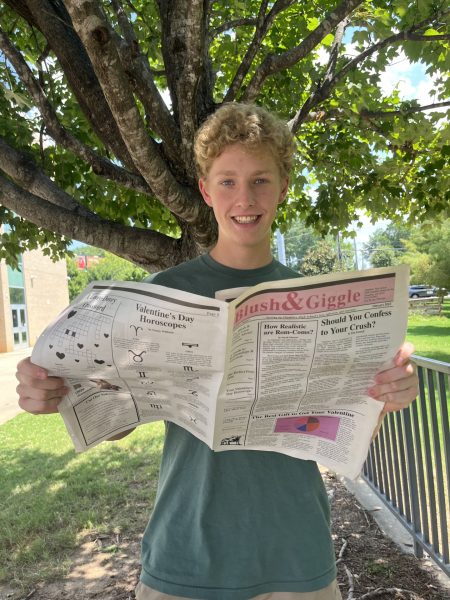AP Research is the second of two classes required for the AP Capstone Diploma, and the year is structured around one research project. As a result of this unique opportunity, many students have become an expert in their niche chosen research topics.
“The class is very independent. For the first semester, we started with researching prior knowledge on our topic, seeing what else is out there, and then we would find gaps in the field that’s already been discovered. After, we created a method to study our found gap in the body of knowledge,” said Joey David (‘25).
Once students have selected their research topic, they have to conduct original research to answer their research question.
“We had two or three months to conduct our research, but you can kind of conduct it whenever. While you are researching, Mr. Avett is always there to help you, but you have to stay motivated. The research you have to do by yourself, but there are guiding activities that teach you certain aspects of the research process,” said Matthew Coates (‘24).
The class has a lot of built-in work time, but there are a few hard deadlines that can be stressful.
“We have a lot of free time, but when a due date or deadline is approaching, the class usually gets a little more tense. You have to write a lot, but I love writing,” said Allie Knudsen (‘25).
David’s research project focused on the perception of student-athletes at Brown University.
“My research was on how club sport athletes and varsity athletes at Brown University were perceived by their peers. It looks into how the average student at Brown, an Ivy League university known for its academics, judges athletes that [attend] that university. I started my research by reaching out to my sister, who goes to Brown, so that she could help me find people to fill out my survey. Once I got a good number of respondents, I started reaching out to people who had completed the survey and asked if they could participate in an interview. With the people that responded to my emails, I did a 10 minute interview, trying to get a more in depth view of their response to the survey. Through my research, I learned that—surprisingly—the perception of athletes is pretty positive at Brown, which went against what I hypothesized. Most of the other papers I read said that college athletes are typically negatively perceived, [but] I found that not only are the varsity athletes perceived positively, but club athletes are perceived especially so. This is because they have to do a lot more work to maintain their busy schedule, so I learned that some club athletes can even be seen as better than the regular athletic student,” said David.
Knudsen researched how sensory deprivation impacts image perception.
“My research topic tests the validity of the sensory compensation hypothesis in relation to mental image perception accuracy. There’s two primary hypotheses in the realm of sensory deprivation. The primary one is a sensory compensation hypothesis, which hypothesizes that when one sense is deprived, the others are amplified. There’s also the perceptual deficit hypothesis that if one sense is deprived, the others are also deprived. Seeing that the sensory compensation hypothesis was more prominent in my research, I decided to study that in relation to mental image perception accuracy, which is the accuracy with which a participant can identify an image that they haven’t seen. I mainly drew commonly seen images on participants’ palms and counted the amount of guesses it took in different circumstances with sensory deprivation. I found that females were, on average, about 200% better at mental image perception accuracy, no matter what sensory deprivation they were under. Visual artists were also about 145% better at mental image perception accuracy, no matter what deprivation group they were in. [Lastly,] I found that sensory deprivation helped mental image perception accuracy only in easily guessable images, but not with more abstract shapes,” said Knudsen.
Coates researched the timing of aerobic exercise’s effect on memorization in cross country athletes.
“My question I tried to answer was whether or not acute aerobic exercise has a temporal effect on the enhancement of retrospective memory and male high school cross country athletes. I took 15 kids from the cross country team this past season, and I had them split into three groups. Two of the groups completed exercise with a memory test, and the first group served as a control phase. They took the memory test to see what the baseline was for being able to memorize words. Group two completed the memory test during exercise, and group three completed it after exercise. So, I was trying to investigate [how] the timing of exercise impacts the enhancing effects that exercise has on memory,” said Coates.
Jonathan Sneh (‘25) researched how differences in race and gender influenced people’s perception of the person through photographs.
“My research topic is about image perceptions and first impressions based on photographs and appearance. I generated AI photos of different types of people with different genders, cultural backgrounds, and formality styles. Then, I created a mixed methods survey which tried to detail students’ perceptions of which AI-created people they [would] trust more in economic situations and why—based on clothing, gender, or cultural background. So far, I have found that males tend to be seen as more economically successful, while women seem to be perceived as more financially trustworthy. I also found that formal attire is perceived as more financially affluent over more casual attire,” said Sneh.
For students looking to take AP Research in the future, current students have some tips for you.
“Make sure to pick a topic you’re interested in. Also, I think you should research a general field, then narrow down your topic as you go on. If you really like math or something, then you should be looking at a wide range of math sources and slowly narrow down your topic to a [specific] type of math,” said David.
As far as time management goes, AP Research is a self-paced class.
“I would recommend that you don’t procrastinate. If you do a little bit every day, the class won’t be difficult at all. I didn’t do that, but it’d be great for you,” said Knudsen.
The final tip is to come into AP Research knowing what you want to research.
“I recommend that you start thinking about your research question before you go into the class, because that deadline jumps out at you pretty quick,” said Coates. “Also, be very careful and meticulous about detail, because you will get a lot of points off if you miss small things.”














